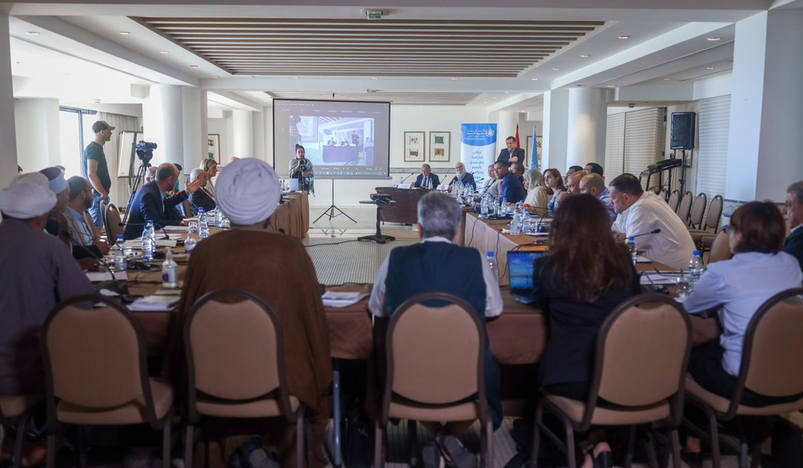
Combatting Hate Speech Conference
Doha International Center for Interfaith Dialogue (DICID) participated in the regional conference on the "Role of Religious Leaders & Actors in Combatting Hate Speech" that was held in the Lebanese capital Beirut and organized by the UN Human Rights Regional Office for the Middle East and North Africa (ROMENA).
The conference was intended to raise awareness and promote the culture of active social and peaceful dialogue about the role of religious leaders and actors in preventing the spread of hatred and incitement to hatred through the convergence of an array of active representatives of diverse entities in the Arab region to further share knowledge and experiences among them. The conference also sought to track the progress made in the efforts of the religious leaders and actors in the Arab region at the level of combating hate speech and promoting tolerance and respect for diversity.
In his paper delivered to the conference, HE Chair of DICID Dr. Ibrahim bin Saleh Al Naimi reviewed the initiatives of the state of Qatar, including the center's pursued initiative in combating hate speech based on the general frameworks and recommendations of religious leaders and actors' action plan emanating from Fez process, which refers to a series of consultations, organized by the United Nations Office on Genocide Prevention in 2016 with religious, civil and regional organizations and leaders, in addition to the professional expert entities worldwide.
Dr. Al Naimi underlined the significance of the religious leaders and institutions, including their active role undertaken to combat hate speech, including the importance of openness of those institutions to the various societal institutions and their inter-cooperation to disseminate the culture of tolerance, moderation and mutual co-existence, pointing to the possible cooperation fields between these institutions, such as the organization of conferences, seminars, workshops, training sessions in schools and universities and youth gathering centers, as well as the establishment of youth camps or roundtables with the engagement of academics, religious schoolers and the influential personalities in the communities and youth with the objective of consolidating the culture of tolerance and moderation. He, likewise, proclaimed the need for reviewing, developing and caring for the role undertaken by religious education institutions, including public education curricula and drawing further attention to education, dialogue, diversity, difference and coexistence.
His Excellency underscored the importance of holding such conferences persistently to create a network of relations and active partnerships to crystallize a shared vision for the collective work to promote tolerance values and counter hatred and disseminate the culture of peace in the communities, especially those which had suffered from various scourges of conflicts to empower them to return to the track of development and reconstruction.
(QNA)
.jpg)
Qatar Secures Place Among the World's Top 10 Wealthiest Nations
.jpg)
Hamad International Airport Witnesses Record Increase in Passenger Traffic

Saudi Arabia: Any visa holder can now perform Umrah

What are Qatar's Labour Laws on Annual Leave?
Leave a comment